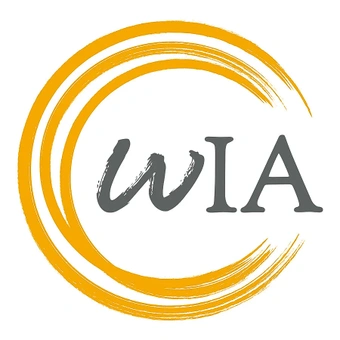Senior Technical Officer

FHI 360
Project Summary
Meeting Targets and Maintaining Epidemic Control (EpiC) is an eight-year (2019–2027) global health initiative project funded by President’s Emergency Plan for AIDS Relief (PEPFAR) and U.S. Agency for International Development (USAID). EpiC has presence in more than 60 countries and has extensive technical experience in international development.
In Ghana, EpiC has been supporting HIV programming since 2019 and recently expanded to Global Health Security (GHS) activities in 2023.
Under GHS, EpiC is strengthening global, regional, and local public health systems to effectively prevent, detect, and respond to infectious diseases, building on broad experience and existing capabilities that align with GHS priorities, National Action Plans for Health Security (NAPHS), and United States Agency for International Development (USAID) goals. In Ghana, EpiC will engage, support and provide technical assistance to One Health key stakeholders (animal, human, and environment) and private sector entities and associations to implement a comprehensive suite of strategies at national and prioritized regions/districts in the country in GHS focused areas to build the International Health Regulations (IHR) core capacity required to prevent, detect, and respond to emerging and re-emerging infectious diseases that cause significant mortality, morbidity, and economic loss. This will involve collaboration with appropriate national stakeholders and partners.
We are seeking to employ a Senior Technical Officer to provide technical assistance and support to EpiC Global Health Security (GHS) Technical leads on Antimicrobial Resistance (AMR), Antimicrobial Use (AMU), Laboratory systems, and Strategic Information systems and reporting on EpiC GHS technical areas (Zoonotic Diseases, Surveillance, AMR/U, Laboratory systems, One Health Coordination). in Accra, Ghana.
Position Summary
The Senior Technical Officer will provide technical assistance and support within the Ghana EpiC GHS team, with a particular focus on surveillance, zoonotic diseases, AMR/AMU, Laboratory systems, and One Health coordination. This involves design, implementation and monitoring of technical strategies and programs, development of tools, support on surveillance, and Strategic Information (SI) systems and reporting including monitoring and evaluation (M&E) activities. The Senior Technical Officer will assist the Ghana GHS Technical Leads to provide technical support on One Health Global Health Security (GHS) activities relating to AMR/AMU and Laboratory systems in accordance with IHR core mandate. The position will be based in Accra, Ghana. Specific responsibilities include:
Technical Requirements:
AMR/AMU
- Provide technical assistance (TA) and support to strengthen AMR detection, surveillance, and One Health activities across human, animal, and environmental sectors.
- Support the Country Team Lead and Technical Leads in collaborating with MOH AMR Secretariat and One Health key stakeholders (Human, Animal, Environment) at all levels (national, regional, districts, sub districts, community) for project design, and implementation.
- Support the development and implementation of initiatives to improve AMR detection and surveillance capacity and TA to collect, assemble, and review data related to AMR and AMU patterns in all sectors.
- Provide technical assistance and participate in investigations of outbreaks involving resistant pathogens (e.g., source, antibiotic use, and spread of infection) and the design of interventions to interrupt transmission.
- Provide technical assistance and participate in mapping, investigating, and assessing antibiotic distribution and use in all sectors.
- Work closely with EpiC GHS Technical leads to conduct supportive supervision to multisectoral laboratory and surveillance sites to improve the detection of AMR and to understand AMU and support laboratory-based AMR surveillance.
- Support the development, review, and implementation of national plans, strategies, SOPs, and policies at national, regional, and local levels to reduce AMR and improve antimicrobial stewardship (AMS).
- Contribute to strategies and activities that will enhance sharing of AMR and AMU data across sectors and with national stakeholders.
- Provide TA to enhance knowledge of strong AMS practices within health professionals working in all sectors to advance diagnosis-based surveillance of AMR.
- Support capacity building activities to improve GHSA and IHR capacities.
- Contribute significantly to project work planning, reporting, technical writing inputs and documentation of project activities.
- Support monitoring and evaluation of activities across the GHS portfolio.
- Identify issues and challenges, and develop strategies for effective implementation of related work plan activities.
- Participate in One Health stakeholders’ meetings and share updates on targets and results.
- Contribute to the preparation of required reports to EpiC and USAID.
Laboratory Systems
- Support EpiC GHS Technical leads to provide TA in Strengthening standard protocols and guidelines to harmonize epidemiological and laboratory aspects of detection, confirmation, outbreak investigation, design, and implementation of disease control efforts.
- Provide TA and support to sustain joint capacity strengthening of human, animal, environmental health systems, standardization of laboratory protocols and sharing including safe sampling at one health national and regional/districts laboratories to detect the same pathogens: packaging and transporting specimen from testing laboratories to reference laboratories.
- Support Technical leads on continuous capacity strengthening to increase human capacities and logistical support in each laboratory to serve as a reference laboratory and create linked database networks over the relevant sectors to improve reporting, data sharing and early detection of zoonotic disease outbreaks.
- Employ a decentralized (Hub and Spoke) model or approach to identify existing diagnostic networks and explore partnerships to strengthen animal health sample referrals and transport systems.
SI Systems and Reporting
- Provide TA and support in developing strategic information systems for GHS technical areas in-country, ensuring that these adhere to the appropriate global/national strategies.
- Support Technical leads in the development of performance monitoring plans and development of systems for data collection, collation, analysis and use.
- Ensure application of effective data collection, tracking, and reporting to monitor activity outputs and program quality and make recommendations for improvement
- Support the analysis and use of data from routine information systems and special surveys to influence the design and scope of projects, including ensuring that project data are appropriately displayed in dashboards using various graphics and geo-spatial displays
- Identify best practices for documentation as success stories, technical reports, or peer review publications and review surveillance, research and evaluation publications prior to release to stakeholders
- Review M&E activities in projects for quality and adherence to donor requirements
- Monitor data quality and accuracy, immediately reporting any discrepancies to leadership
- Collect lessons learned from programs and collaborate with technical leads and EpiC GHS SI (HQ) to ensure M&E components are of high quality, and improve processes and practices in data analysis
- Perform other duties as assigned
Applied Knowledge & Skills:
- Knowledge of the GHS field in general and proven experience and working knowledge of AMU/AMR detection, surveillance and laboratory systems. Should be skilled in facilitation, coordination, report writing, and skilled in data review and interpretation.
- In-depth knowledge of concepts, practices, and procedures in providing technical support for research studies.
- Demonstrated experience in implementation of field and laboratory-based AMU/AMR methodology, AMR detection and surveillance, and Animal Health Laboratory systems.
- Competent in AMR disease detection and field epidemiology.
- Strong expertise in GHS technical and programmatic areas.
- Excellent quantitative, qualitative, and analytical skills.
- Development of scope of works and deliverables for partners, consultants, etc.
- Broader knowledge of quality standards
- Proficiency with database management software and on-line search tools required.
- Ability to manage projects, set realistic priorities, and plan for the successful implementation of activities
- Demonstrable skills and experience in development of M&E tools, data analysis, data use, and assessments.
- Demonstrable skills and experience in data management and monitoring field activities
- Experience working with donor-funded monitoring and evaluation systems highly preferred.
- Proficiency in data management and analytic software (e.g., Excel, DHIS2, PowerBI, Tableau, SAS, SPSS, Stata, R)
- Must be able to read, write, and speak fluent English.
- Excellent organizational and analytical skills and demonstrated project management skills.
- Ability to influence and collaborate with others.
- Demonstrated proficiency with using Microsoft Office Suite required.
- Ability to solve problems and implement corrective action as needed.
Supervision Given/Received:
This position reports to the Project Director
Education and Experience:
- Masters’ degree, plus 6+ years’ relevant experience in Public Health, infectious disease, epidemiology, statistics, demographics, microbiology, veterinary medicine, or antimicrobial resistance; Advanced training on AMR/ AMS/ AMC and/or relevant fields
- Minimum of 5 years of relevant experience in developing and supporting health monitoring and evaluation systems
- Preferred experience working with NGOs and/or USAID projects. Familiarity with USAID regulations and systems, requirements, and reporting is a plus
This job posting summarizes the main duties of the job. It neither prescribes nor restricts the exact tasks that may be assigned to carry out these duties. This document should not be construed in any way to represent a contract of employment. Management reserves the right to review and revise this document at any time.
FHI 360 is an equal opportunity and affirmative action employer whereby we do not engage in practices that discriminate against any person employed or seeking employment based on race, color, religion, sex, sexual orientation, gender identity, national or ethnic origin, age, marital status, physical or mental disability, protected Veteran status, or any other characteristic protected under applicable law.
Our values and commitments to safeguarding: FHI 360 is committed to preventing any type of abuse, exploitation and harassment in our work environments and programs, including sexual abuse, exploitation and harassment. FHI 360 takes steps to safeguard the welfare of everyone who engages with our organization and programs and requires that all personnel, including staff members and volunteers, share this commitment and sign our code of conduct. All offers of employment will be subject to appropriate screening checks, including reference, criminal record and terrorism finance checks. FHI 360 also participates in the Inter-Agency Misconduct Disclosure Scheme (MDS), facilitated by the Steering Committee for Humanitarian Response. In line with the MDS, we will request information from job applicants’ previous employers about any substantiated findings of sexual abuse, exploitation and/or harassment during the applicant’s tenure with previous employers. By applying, job applicants confirm their understanding of these recruitment procedures and consent to these screening checks.
FHI 360 will consider for employment all qualified applicants, including those with criminal histories, in a manner consistent with the requirements of applicable state and local laws.
FHI 360 will never ask you for your career site username or password, and we will never request money, goods or services during the application, recruitment or employment process. If you have questions or concerns about correspondence from us, please email CareerCenterSupport@fhi360.org.
FHI 360 fosters the strength and health of its workforce through a competitive benefits package, professional development and policies and programs that support a healthy work/life balance. Join our global workforce to make a positive difference for others — and yourself.
Please click here to continue searching FHI 360's Career Portal.

